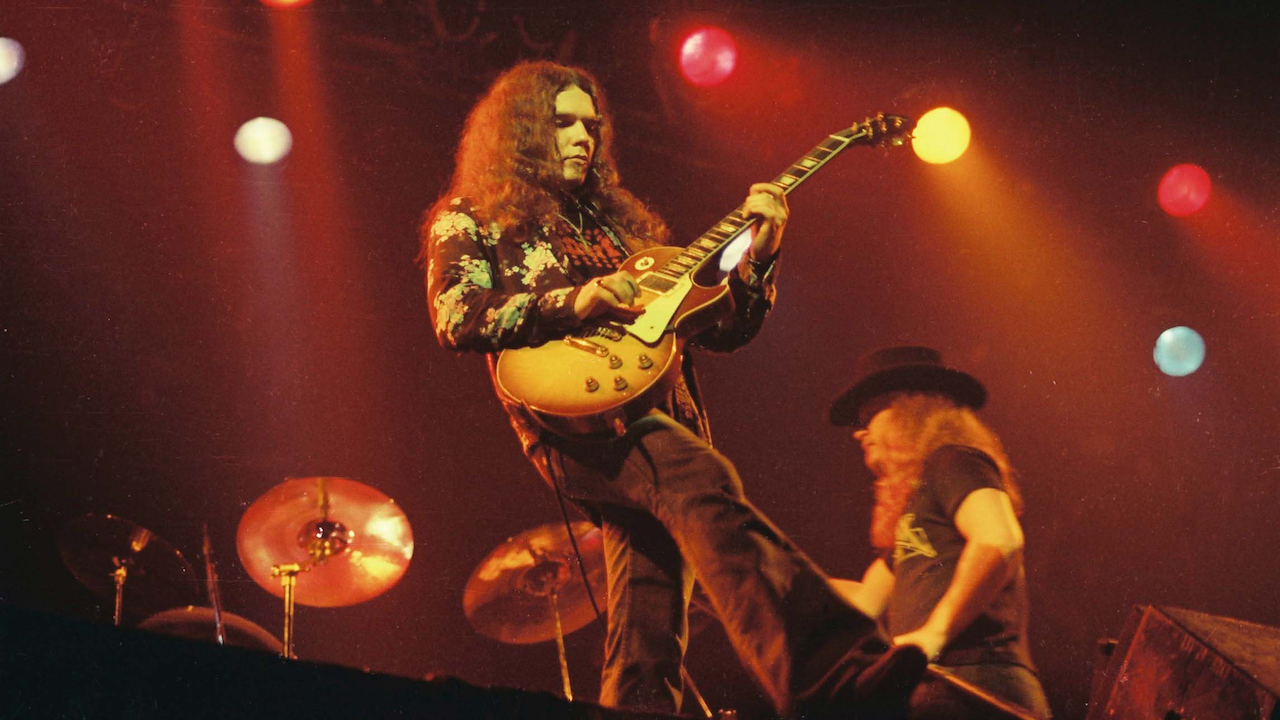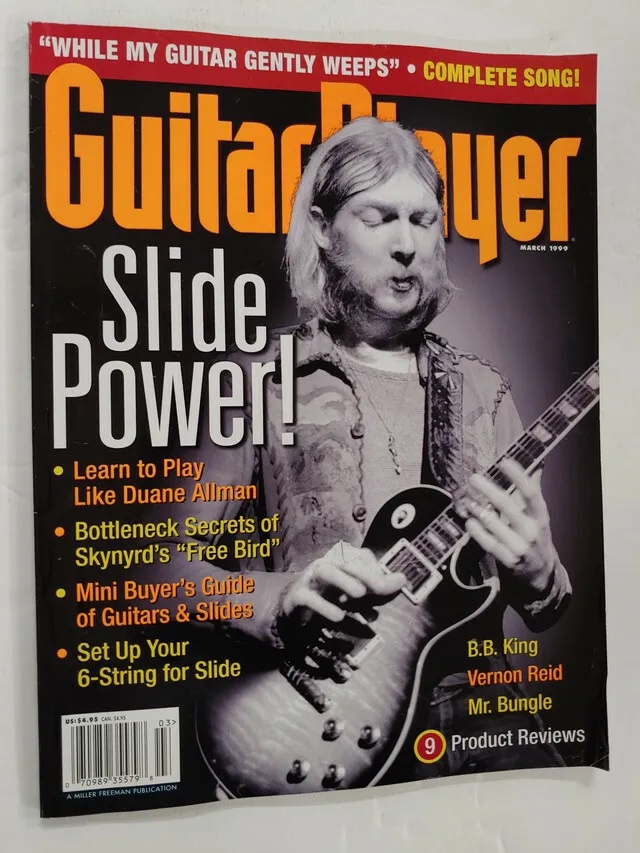"I took a screwdriver and stuck it under the strings at the nut…" Gary Rossington on how he came up with his sound on Lynyrd Skynyrd's Freebird
Lynyrd Skynyrd's Gary Rossington died in March, 2023. Back in 1999, he told us the weird trick he used for the slide part on Freebird…

This article was first published in Guitar Player, in March 1999. It is reprinted in its original form here in tribute to Gary Rossington who died on 5 March, 2023. "If I leave here tomorrow/Would you still remember me?/For I must be traveling on now/Cause there's too many places I've got to see…"
Since its appearance on Lynyrd Skynyrd's 1974 debut album, Pronounced Leh-Nerd Skin-Nerd, "Free Bird" has become a rock classic. The emotional eulogy to Duane Allman has charted millions of radio plays, and is perhaps the all-time song request screamed at bar bands by rowdy, drunken crowds. "Freeeeeeee Bird!"
When Skynyrd guitarist Gary Rossington performs "Free Bird", he plays his original cherry '61 Gibson Les Paul/SG Standard with side-pull vibrato. He plugs his guitar directly into the rig he has used since the '70s: a Peavey Mace amp head and a Peavey 4x12 cabinet (with the back removed to produce a more open sound) loaded with JBL speakers. This very same rig survived the tragic plane crash that claimed the lives of Skynyrd singer Ronnie Van Zant, guitarist Steve Gaines, and singer Cassie Gaines.
Players wishing to emulate Rossington's chillingly beautiful slide performance on "Free Bird" will need more than good ears and decent chops. A couple of subtle, but essential "tricks" are part of the recipe for a truly convincing tone. Here, Rossington reveals the history and the mystery behind one of rock's most enduring solos.
"Around 1970, when we wrote the song, I had just started playing slide," explains Rossington. "Allen [Collins, guitarist] had these chords, but Ronnie couldn't figure out any melody or lyrics to go with them. We kept playing the chords over and over, until Ronnie figured out some lyrics, and I came up with the slide part. But when I played, the bottle kept clinking against the frets because the strings were too low.
"I took a screwdriver, of all things, and stuck it under the strings up at the nut, so it would raise the strings up like a steel guitar. Then, I tuned the B string down to G – so the G and the B strings were both tuned to G. With the two Gs, it creates a drawling, doubled sound. These days, I use two Dean Markley .017-gauge G strings for the third and second strings to make the sound more consistent, and, instead of the screwdriver, I use a little piece of wire about five inches long.
"That's the whole trick. I don't really need to use that little wire anymore, but I just do it out of sentimental reasons. I've never played that song live without it -- it just reminds me of the way I did it originally. It's like Jimi Hendrix on 'All Along the Watchtower.' He played the slide solo with a Zippo lighter. He couldn't get it to sound right with a steel slide or a bottle, so he used a Zippo. Each guy has his own little tricks.

"For a slide, I've always used a glass Coricidin bottle, just like Duane Allman. He told me that a bottle sounds different than a steel slide, and I think it does, so I copied him. Duane was one of my heroes and, in my opinion, he was the best slide player who ever lived. He had such a great touch. He was always on pitch -- never sharp or flat -- and that's hard to do.
"I use the slide on my middle finger. I used to wear it on my pinky so I could use the other fingers to fret with, but I just never had the 'touch,' as I call it. When it was on my pinky I would play out of tune because I couldn't see the frets as well as when the slide was on my middle finger.
"When I play the slide part, I start on the third string, slide up to the 12th fret, and take it from there. I hit the third and second strings together and play them like they're one string -- it's the same idea as a 12-string guitar. For the jam at the end, I pull out the wire and play the rhythm part. I just have to make sure that I don't hit the B string when I'm playing the chords.
"I don't know what inspired me to tune my guitar to E-A-D-G-G-E, or to use the screwdriver to raise the strings. I just remember that I wanted to do something a little different from the same old slide guitar sound, so I came up with this unique kind of invention. I thought it was cool."
Special thanks to Rossington guitar tech Rob Corsie for background information and technical details. This interview first appeared in Guitar Player magazine, March 1999.
Get The Pick Newsletter
All the latest guitar news, interviews, lessons, reviews, deals and more, direct to your inbox!
“We’d heard Jimi Hendrix, we'd heard the Who, but now we finally got to see these guys. And watching Jimi Hendrix burn his guitar….” Grace Slick on Hendrix at Monterey, Jefferson Airplane and the Spanish origins of “White Rabbit”
“I’m still playing but I’m covered in blood. Billy’s looking at me like, ‘Yeah! That’s punk rock!'” Steve Stevens on his all-time worst gig with Billy Idol — and the visit to Jimi Hendrix's grave that never happened









